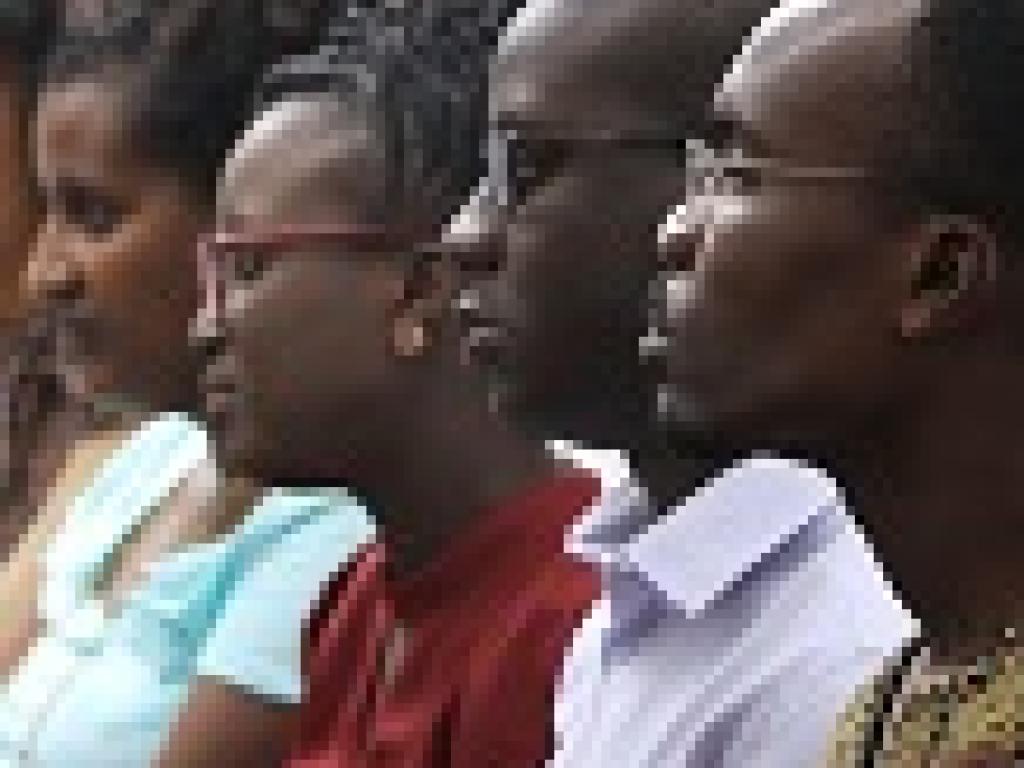Building Bridges to Accountable African Leadership

“I’ve come to realise that meaningful leadership isn’t about power and position: that’s leading from a position of slavery. Knowing who you are and working from that? That’s true leadership.”
Those insightful words came from Ngosa Simachela, a Zambian lawyer and passionate community activist. She was recently in Cape Town as part of the University of Cape Town’s Emerging African Leaders Programme: a two week series of intensive workshops and individual coaching designed to incubate leadership skills and forge pan-African networks of support.
The Emerging African Leaders programme is an inspirational project run by UCT’s Graduate School of Development Policy and Practice. It aims to gather outstanding emerging leaders from a broad variety of backgrounds and professional fields, using African knowledge to inspire ethical and accountable leadership. This year, the cohort of twenty six participants represented six African countries and included leaders from legal, financial, communications, engineering and activist backgrounds across both government and civil society.
This diversity has typically proved a strength, providing interdisciplinary solutions to common problems. “It’s so refreshing to see the diversity of talent and experience this programme has pulled into one room,” commented Papa Loum, a Senegalese finance professional and community youth activist.
Star-Studded Cast
As part of the programme, the fellows participate in intensive leadership training, a process facilitated by award-winning author and former medical doctor, Maria Phalime. Periods of training were combined with leadership reflections from an inspirational series of speakers, which this year included former Cabinet Ministers Trevor Manuel and Bantu Holomisa, former Justice Albie Sachs, activist Pregs Govender and Professor Achille Mbembe. “We are fortunate to be in a position to tap into resources, both at a human and a skills level, that enable us to facilitate this remarkable process,” commented GSDPP Director Alan Hirsch.
Programme participants typically find the experience transformative on both a broadly philosophical and deeply personal front. “I feel like a different person. I built my confidence, grew exponentially and am in touch with myself. We become better leaders when we work on ourselves and that’s what this programme gave us a chance to do,” remarked Makda Tessema, an Ethiopian democracy and governance fellow at the African Union.
Dr Marianne Camerer, Director of the GSDPP Building Bridges Programme which facilitates the programme, has nothing but praise for the 2017 cohort. “We have been fortunate to once again host an outstanding group of emerging African leaders this year. Their ethical approach to leadership challenges, group camaraderie and depth of engagement was noticeable from the outset and sustained throughout. We could not have asked for a more engaged group: it should give us all much hope for pan-African collaboration into the future.”
Bringing The Issues Home
For Tristan Görgens, acting director for Human Development in the Western Cape Government, the pan-African perspective helped to bring perspective on topical South African issues. “I’m very interested in decolonising knowledge – it’s a popular discussion in academic contexts right now, but I think it has to be a conversation that moves into very practical areas across society and after this programme I’m excited to start that journey.”
The 2017 cohort may have departed from Cape Town on their own respective journeys home this weekend, but they share Görgens’ enthusiasm for moving joint projects forward based on identifiable areas of overlap. One of these is the #WeAreAllMigrants campaign - a multimedia project that aims to personalise the issue of migration to combat the rising xenophobia experienced particularly in South Africa. “I’m privileged to be part of this vibrant group who have a commitment to change the continent,” enthused Zebib Tekle, a United Nations Economic Commission for Africa administrator and community activist. “Before this programme I was localised in Ethiopian concerns. Now I feel connected to Africa.”
Ultimately, though, the leadership programme has already provided twenty six powerful personal journeys into ethical public leadership. “When the letter of invitation came, my boss told me ‘forget about that programme, Busi. They’re just going to change you’,” said South African Right2Know activist Busisile Matabane. “He was right – you have changed me. But in a way I am so grateful for.”
Article appeared on LeadSA
